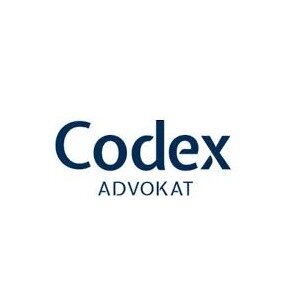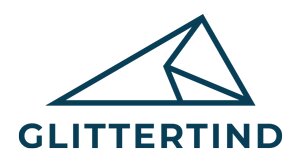Best Energy Regulatory Law Lawyers in Norway
Share your needs with us, get contacted by law firms.
Free. Takes 2 min.
Or refine your search by selecting a city:
List of the best lawyers in Norway
About Energy Regulatory Law in Norway
Energy Regulatory Law in Norway covers the legal frameworks, regulations, and policies that govern the production, distribution, and consumption of energy. Norway is a leader in renewable energy, especially hydropower, and its laws are designed to ensure the efficient, sustainable, and fair use of the country's natural energy resources. These laws balance the need for reliable energy supply, environmental concerns, and economic interests.
Why You May Need a Lawyer
Navigating Norway's complex energy regulatory environment can be challenging. Legal assistance is essential in various situations, including:
- Applying for licenses or permits related to energy production or distribution
- Complying with environmental and safety standards
- Resolving disputes between producers, consumers, or governmental agencies
- Negotiating contracts for energy projects or grid access
- Managing regulatory investigations or enforcement actions
- Acquiring or divesting energy assets
- Participating in renewable energy projects or public tenders
- Understanding obligations under the European Economic Area (EEA) regulations
Local Laws Overview
Norwegian energy law is informed by national legislation, EU and EEA directives, and international agreements. Key aspects include:
- The Energy Act: The principal legislation regulating the transmission, distribution, and trading of electricity in Norway. It establishes the licensing regime and the roles of various market participants.
- The Water Resources Act: Governs the use and management of Norway's robust water resources, critical for hydropower projects.
- Renewable Energy Regulations: Includes laws on feed-in tariffs, subsidies, and incentives to promote green energy.
- Grid Access and Tariffs: Regulations ensure fair access to the electricity grid and set rules for pricing and grid development.
- Consumer Protection: Provisions exist to protect both commercial and residential consumers from unfair practices and to ensure transparency in billing and contracts.
- Emissions and Environmental Laws: These ensure that energy projects adhere to stringent environmental standards.
- Regulation by National Authorities: The Norwegian Water Resources and Energy Directorate (NVE) and the Ministry of Petroleum and Energy play central roles in supervising and enforcing these laws.
Frequently Asked Questions
What is the primary regulatory body for energy in Norway?
The Norwegian Water Resources and Energy Directorate (NVE) is responsible for regulating the energy market, enforcing relevant legislation, and issuing permits.
Do I need a permit to produce renewable energy?
Yes, most forms of renewable energy production, such as hydropower, wind farms, and larger solar installations, require permits from NVE and other relevant authorities.
How does Norway regulate electricity prices?
Electricity prices are mainly set by market forces in the Nordic power exchange (Nord Pool), but grid tariffs and certain fees are regulated by NVE.
Are there incentives for renewable energy projects?
Yes, Norway offers support schemes and incentives for new renewable energy projects, such as subsidies or participation in green certificate schemes.
How can foreign companies participate in Norway’s energy sector?
Foreign companies can invest in or operate energy projects in Norway, but must comply with local laws, obtain necessary permits, and may face sector-specific restrictions.
What happens if an energy company violates regulations?
Violations can lead to warnings, fines, loss of license, or even criminal penalties, depending on the severity of the infraction.
Is consumer protection strong in the Norwegian energy market?
Yes, consumer rights are well protected, including rights to fair contracts, transparent billing, and mechanisms for dispute resolution.
How does the EU affect Norwegian energy law?
As a member of the EEA, Norway implements most EU energy directives, meaning that European regulations strongly influence national energy law.
What environmental safeguards are in place?
Energy projects must undergo thorough environmental impact assessments and comply with strict environmental laws to protect nature, water resources, and communities.
Can small businesses generate their own electricity?
Yes, small businesses can set up self-generation installations, such as solar panels, but may need to follow permitting and technical regulations depending on the size and type of the installation.
Additional Resources
Here are some important resources if you seek more information or guidance on energy regulatory law in Norway:
- Norwegian Water Resources and Energy Directorate (NVE) - Regulatory information, licensing, market supervision
- Ministry of Petroleum and Energy - Policy development and legislative proposals
- Norwegian Consumer Council - Advice and dispute resolution for consumers
- Nord Pool Power Exchange - Information on market prices and electricity trading
- Norwegian Environment Agency - Environmental standards and impact assessments
- Advokatforeningen (The Norwegian Bar Association) - List of qualified energy law attorneys
Next Steps
If you believe you need legal assistance concerning energy regulatory law in Norway:
- Gather all relevant documents such as contracts, permits, or correspondence with regulators
- Write down a summary of your situation and any questions you have
- Consult official websites of NVE or the Ministry of Petroleum and Energy to understand basic requirements
- Contact an attorney specializing in energy law, ideally one who has experience with your particular type of issue
- Schedule an initial consultation to discuss your options and potential strategies
Lawzana helps you find the best lawyers and law firms in Norway through a curated and pre-screened list of qualified legal professionals. Our platform offers rankings and detailed profiles of attorneys and law firms, allowing you to compare based on practice areas, including Energy Regulatory Law, experience, and client feedback.
Each profile includes a description of the firm's areas of practice, client reviews, team members and partners, year of establishment, spoken languages, office locations, contact information, social media presence, and any published articles or resources. Most firms on our platform speak English and are experienced in both local and international legal matters.
Get a quote from top-rated law firms in Norway — quickly, securely, and without unnecessary hassle.
Disclaimer:
The information provided on this page is for general informational purposes only and does not constitute legal advice. While we strive to ensure the accuracy and relevance of the content, legal information may change over time, and interpretations of the law can vary. You should always consult with a qualified legal professional for advice specific to your situation.
We disclaim all liability for actions taken or not taken based on the content of this page. If you believe any information is incorrect or outdated, please contact us, and we will review and update it where appropriate.
Browse energy regulatory law law firms by city in Norway
Refine your search by selecting a city.
















